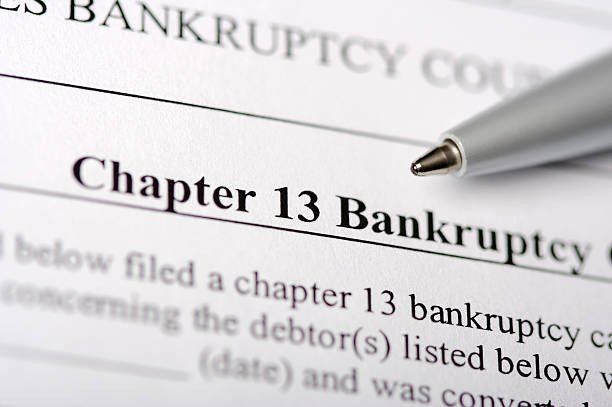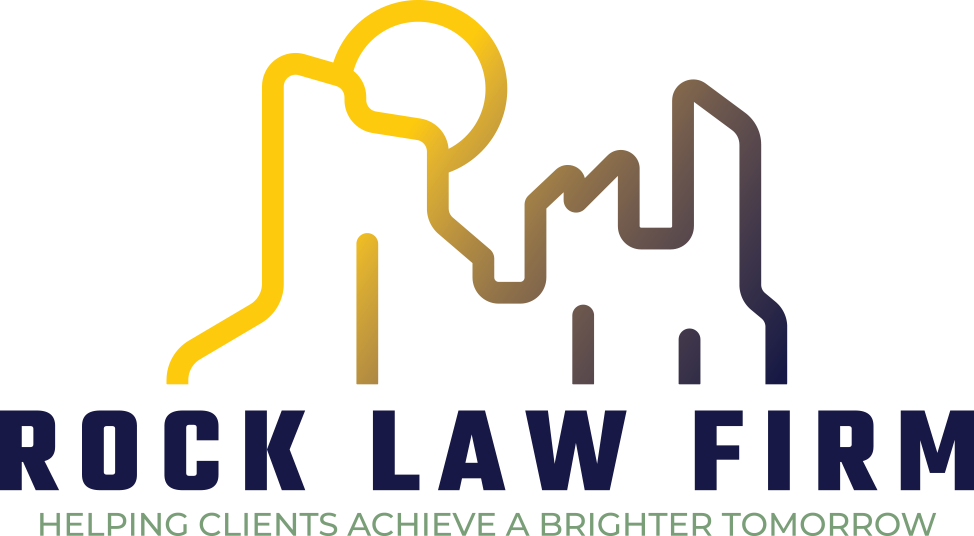
6 Reasons to File Chapter 13 Bankruptcy in Phoenix, AZ
Rock Law Firm
The procedure for filing for chapter 7 and chapter 13 bankruptcy in Phoenix varies. For some unsecured debtors who may lose in chapter 7, chapter 13 bankruptcy may be their only option for debt relief. Through Chapter 13, the debtor may be able to keep all of their assets while repaying only a portion of their debt. Only the self-employed, wage earners, and sole proprietors are eligible for Chapter 13.
Why Would You File for Chapter 13 Bankruptcy?
Consumers are still in debt, despite the fact that the number of people filing for bankruptcy has decreased dramatically since the Great Recession ten years ago. Chapter 13 bankruptcy is chosen by more than a third of the debtors in the annual total of more than 700,000 nonbusiness bankruptcy filings. However, this begs the question of why people file for Chapter 13 bankruptcy.
Unlike Chapter 7, Chapter 13 bankruptcy is used when a debtor either does not meet the Chapter 7 requirements or has enough income to eventually catch up on at least some of their debt obligations. As a result, Chapter 13 bankruptcy requires a bankruptcy court to impose a payment schedule that typically lasts three to five years.
The repayment period takes into account a person's sufficient income as well as missed payments. You must make payments on secured debts in order to keep valuable assets such as your home and car loans. Unsecured debts, such as credit card debt, are included, but the debt only covers a portion of those debts. According to the bankruptcy courts, they believe they can handle the situation with their discretionary income. The remainder is discharged through payroll deductions at the end of the payment plan.
1. Behind on Mortgage Payments, Danger of Foreclosure Proceedings
A person who falls behind on their mortgage payments risks having their home repossessed by the lender through foreclosure. The filing of a Chapter 13 bankruptcy triggers an "automatic stay," which prevents the lender from attempting to collect past-due payments. The entire past-due amount is divided into monthly payments based on the person's income over the term of the payment plan.
With no pressure from the lender, the individual can use this to catch up on arrears and stay in their home. The debtor continues to make their regular monthly mortgage payment as well as a small amount toward the outstanding debt each month. The consumer has caught up and can exit the payment plan at its end. Following that, mortgage payments must be made to the mortgage company.
2. Behind on Car Payments, Danger of Repossession
Your car loan could be in a similar situation. If the borrower falls behind on their loan payments, the lender may seize the borrower's vehicle. When a Chapter 13 bankruptcy petition is filed, an automatic stay is triggered, preventing the lender from repossessing the vehicle.
When you file for bankruptcy, you continue to make your monthly car payments. This additional payment covers the past-due balance for the duration of the court-approved payment plan.
3. Previously Filed a Chapter 7 Bankruptcy code
If you are drowning in debt and have already filed for Chapter 7 bankruptcy within the last eight years, you cannot file for Chapter 13. In this situation, they have no choice but to file under Chapter 13.
4. Owing Taxes from the Past Several Years
If you fall behind on paying different taxes during the Chapter 13 payment plan, you can make up the difference. The bankruptcy judge decides which past-due taxes are "priority" and which are "non-priority." Tax debts will be paid in full over the course of the payment plan.
Non-priority taxes will be grouped with other unsecured obligations, which means the debtor will only have to pay back a portion of them, with the remainder discharged after the payment plan.
5. Behind on Utility Payments, Utilities Shut Off
If you fall behind on your utility bills, such as power and phone, you risk having these services cut off. If you file for Chapter 13 of the federal bankruptcy code, your utilities will not be disconnected; if they have been disconnected, you will be able to reconnect them. Following that, the debtor will have the opportunity to make up any past-due arrearages over the course of their payment plan. Because they are unsecured debt, the debtor will most likely only be required to repay a portion of them before the remainder is discharged at the end of the repayment schedule.
6. Lawsuits, Wage Garnishments, and Bank Freezes
Many people struggle with their monthly living expenses for years before considering bankruptcy. Creditors will go to great lengths to recover money owed to them. They may eventually file a lawsuit and obtain a judgment against the debtor. The debtor's bank account may then be frozen, allowing the creditor to take their money. When things like this happen, it may be the catalyst for a debtor to file for bankruptcy.
Top Rated Bankruptcy Attorney In Phoenix, AZ
Rock Law Firm provides debt management plans to the people of Phoenix and the surrounding area. We help them file bankruptcy under Chapter 13 or Chapter 7. We assist those who are overwhelmed by accumulating debts. For those who qualify, Rock Law Firm offers $0 down filing options to pay unsecured creditors and get you back on track financially. We are also committed to assisting you in obtaining debt relief through bankruptcy.
We provide same-day filings with no money down by taking an innovative approach to bankruptcy law. By scheduling credit counseling, you can discover why so many people rely on us for effective legal representation.
Rock Law Firm promises to provide clients like you with a skilled approach to bankruptcy filing. Contact Rock Law Firm for assistance with the bankruptcy filing if you are considering hiring a bankruptcy attorney near Phoenix.
